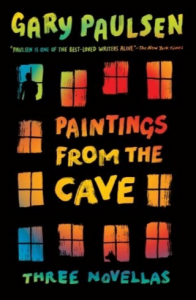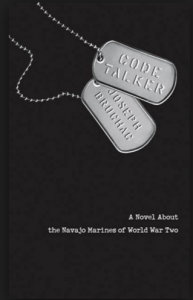Jalem reflects on a story about homeless teens.
Paulsen, Gary. Paintings From The Cave. New York: Wendy Lamb Books, 2011.
“In these three novellas, Gary Paulsen explores how children can survive the most difficult circumstances through art and the love of dogs.” – FVRL. [Art; Dogs; Homeless persons; Violence]
“Before the dogs, she didn’t have any friends” (68).
Have you ever met somebody without any friends besides their pets, or maybe none at all?
“She didn’t look in the windows as she walked by or even glance at the yards because maybe everything in those homes were perfect, like on T.V, and she tried not to look at things that made her feel even more ugly and broken” (76).
Have you ever felt like other people are worth so much more then you are and that you are just worthless next to them?
“Rose Rose Rose, no no no, she felt like hitting something, like breaking something.”
Have you ever felt so sad that you wanted to completely obliterate something?
“All they want to do is help us and not be alone” (103).
Have you ever had someone in your life that just wanted to be around you and help you with every single thing? Or maybe you are the one wanting to be around them?
The novel Paintings from The Cave by Gary Paulsen changed my view of life by sharing with me the knowledge that there are people here in North America – Canada and the United States of America – that need help just like the people in the third world countries in Africa, South America or Asia. Another thing that this book did to change my view of life is show me how you do not have to be related to anybody in your family for them to be your family. There are no papers or blood relationship needed to make someone a part of your family and that what really matters is whether you think of them that way or not. Family does not even need to be human. For example, it shows in this book that dogs and cats or any other pet are just as good of a family as humans. It might still be good to have someone who speaks your own language to talk to, but it is not necessary. For example, when a pet owner returns home from a hard day’s work, their pet is always excited to greet them and spend time with them. The book also reminded me that everybody has feelings. I used to think that people that do not have anything only think about alcohol, drugs, and cheap food but I realize that they actually have dreams to be people that are normal and have real jobs to make real money instead of pan-handling for the rest of their lives. After reading this book I have a better understanding of how other people in the world live, people who are not as fortunate as I am. I also now have a better understanding of how people with little still have the same feelings, hopes, and dreams as I do.

